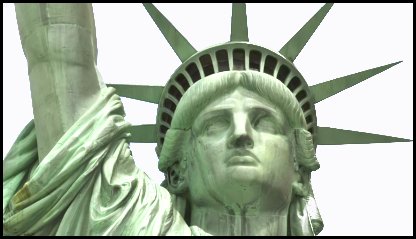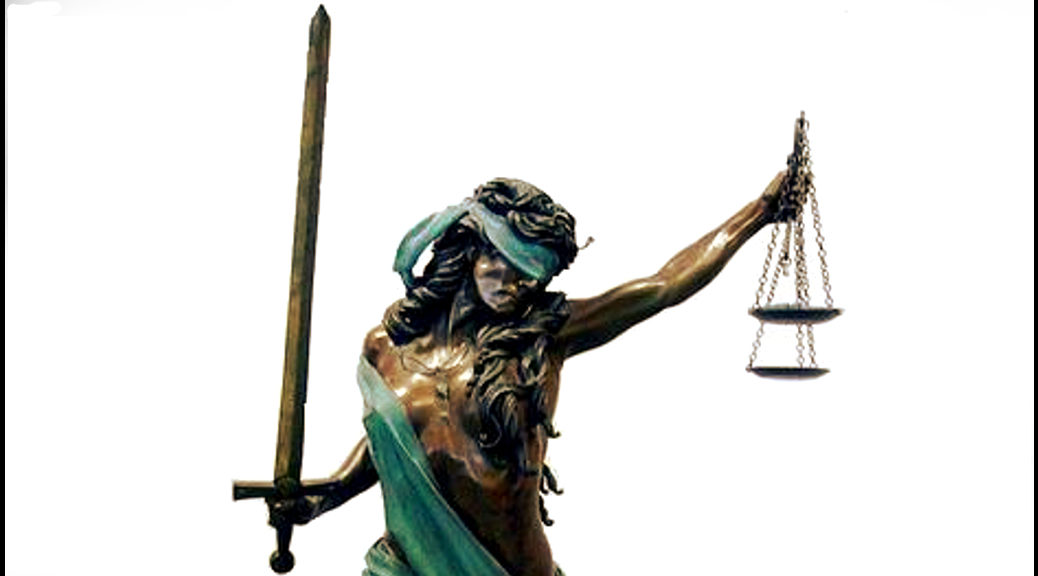This page is continued from Getting Started >>>> How to Navigate this Site >>>> Civil Law and Criminal Law – what’s the difference?:
******************************
What is a Crime?
A crime is a wrongful act that the state or federal government has identified as a crime because it injures or interferes with the interest of society. Crimes are identified within a publicly-accessible, fixed body of statutes (penal codes, ordinances, building codes, etc.) called laws, which are enforced by officers.
A criminal case is a criminal proceeding. The accused is called a ‘defendant”. The victim is:
- the person who has been hurt.
- the state.
- other governmental agency (i.e. city, county, etc.).
The charges are brought by the government. If the defendant loses, the defendant must serve a sentence. A fine is paid to the government and there is possible restitution to the victim. [1]
When Criminal Activity causes a Tort,
the Case can be Tried as Civil and Criminal:
Laws which are likely to violate civil rights are a liability against taxpayers; such laws can be challenged and overturned via following the Federal Rules of Civil Procedure (see Rule 5.1).
When an officer violates a civilian’s rights, it is called a Constitutional tort (a type of tort).
If the officer violated procedure and commit a crime, it is called a color of law crime. If the (county, city, state, federal, tribal, etc.) agency did not properly train or vet the officer, the agency can be held accountable via filing a claim.
Fair Administration of Justice:
The judicial branch must apply the existing laws to each individual situation, to be sure justice is administered fairly. This includes punishing those who are guilty of breaking the law, and keeping the rest of the community safe from crime.
At the U.S. District Court level, the government is represented by the United States Attorney (or an Assistant United States Attorney), also called the prosecuting attorney.
The 6th Amendment Guarantees
Right to Counsel:
“In all criminal prosecutions, the accused shall enjoy the right to a speedy and public trial, by an impartial jury of the state and district wherein the crime shall have been committed, which district shall have been previously ascertained by law, and to be informed of the nature and cause of the accusation; to be confronted with the witnesses against him; to have compulsory process for obtaining witnesses in his favor, and to have the assistance of counsel for his defense.“
Anyone accused of a federal felony has a right to be assisted by a lawyer for every step of the process, even if they can’t afford one. (A felony is a crime carrying a jail term of more than one year.) The defendant can retain, or hire, their own defense attorney, or they may have one appointed for them if they financially unable to hire an attorney for their defense. In many cases, the appointed attorney will be from the Federal Public Defenders Office. Defendants are also allowed to represent themselves, and this is called pro se. [2]
Various Types of Laws:
code – the published statutes of a jurisdiction, arranged in a systematic form by chapters and sections. — aka consolidated law.
- penal code – the published criminal statutes of a jurisdiction, usually defining and categorizing offenses, and setting forth their respective punishments. — aka criminal code.
- Model Penal Code – a proposed criminal code prepared jointly by the Commission on Uniform State Laws and the American Law Institute, used as the basis for criminal-law revision by many states. — Abbr. MPC.
- Uniform Commercial Code – governs commercial transactions (i.e. sales, leases, negotiable instruments, deposits and collections, letters of credit, bulk sales, warehouse receipts, bills of lading and other documents of title, investment securities, and secured transactions). — Abbr. UCC.
- United States Code – the official codification of general and permanent laws enacted by congress. — Abbr. USC.
court rules – regulations having the force of law and governing practice and procedure in the various courts.
ordinance – an authoritative law or decree; specifically, a municipal regulation, especially one that forbids or restricts an activity.
policy – A standard course of action that has been officially established by an organization, business, political party.
- public policy – the policy (course of action) in relation to the administration of the law, to protect and promote the general welfare of the public.
statute – a legislation (aka act or law) enacted by any lawmaking body, such as a legislature, administrative board, or municipal court.
Varying Degrees of Crimes:
felony – a serious crime usually punishable by imprisonment for more than one year or by death. (i.e. burglary, arson, rape, murder, treason, robbery, larceny). — aka major crime; serious crime.
misdemeanor – a crime less serious than a felony, usually punishable by fine, penalty, forfeiture, or confinement (usually a brief term) in jail (rather than prison). — aka minor crime; summary offense.
infraction – a violation, usually of a rule, regulation, or local ordinance, not punishable by incarceration.
offense – synonymous with “crime.” — aka criminal offense.
Legal Terms used to help Classify Crimes:
aggravated – made worse or more serious by circumstances such as violence, the presence of a deadly weapon, or the intent to commit another crime.
- simple – (of a crime) not accompanied by aggravating circumstances.
conspiracy – an agreement by two or more persons to commit an unlawful act, coupled with an intent to achieve the agreement’s objective, including any action or conduct that furthers the agreement.
corrupt – subverting the instrumentalities of government to personal profit; impeding or obstructing the administration of justice.
malice – intent to commit a wrongful act; reckless disregard of the law or of a person’s legal rights. — malicious, vb.
unjust enrichment – unlawful, unjustifiable retention of property, without consent from the transferor(s), for which the beneficiary must make restitution or recompense.
Various Crimes
and Corresponding §§ of the U.S. Code:
Select any of the following broad categories for specific crimes and corresponding laws:
color of law crimes – when government employees abuse their authority or deprive a person’s rights under “color” or *appearance* of law.
- Deprivation of rights under color of law 18 U.S.C. § 242 – using a “statute”, “policy”, “ordinance”, or “code” (etc.) to violate a person’s rights using the appearance of law.
- false arrest, false imprisonment – restraint, arrest, and/or imprisonment made without a valid warrant, or without probable cause to believe the person has committed a crime.
- extortion – the unlawful taking, by an officer,, by color of his office, of any money or thing of value not due to him, or taking more than is due, or taking it before it is due.
- perjury and false swearing – lying under Oath of Office, in an Affidavit, in a judicial proceeding or administrative proceeding, or to an insurer.
- bribery – the corrupt payment, receipt, or solicitation of anything of value with intent to influence the action of a public official.
election fraud and electioneering – includes sections on gerrymandering and lobbying.
environmental crimes – statutory offenses involving harm to air, water, or soil quality, or the harming of endangered species.
homicide – the killing of a human being by another, under any circumstances.
obstruction of justice – impeding or hindering the administration of justice in any way (i.e. fabricating or destroying evidence, witness-tampering, or threatening or intimidating a judge, bribing a juror). — aka obstructing justice; obstructing public justice; perverting the course of justice; interfering with the administration of justice; obstructing the administration of justice; obstructing the course of justice; defeating the due course of justice; defeating the ends of justice; attempting to pervert the course of justice.
fraud – a knowing misrepresentation or concealment of a material fact made to induce another to part with anything of value or surrender some legal right. i.e. – election fraud.
theft – taking something to which one is not entitled, by whatever means (i.e. robbery, burglary, embezzlement, extortion, fraud).
unlawful detainer – the unjustifiable retention of the possession of real property by one whose original entry was lawful.
racketeering – a pattern of illegal activity (i.e. bribery, extortion, fraud, murder) carried out as part of an enterprise (i.e. crime syndicate) that is owned or controlled by the conspirators.
treason – attempting to overthrow one’s state or the United States, either by making or inciting war against the government or by materially supporting its enemies.
trespass – a misfeasance, transgression, or offense which damages another’s person, health, reputation, or property.
- burglary – breaking and entering any building with the intent to commit a felony (i.e. larceny, murder).
subversion – the process of overthrowing, destroying, or corrupting the government, often by infiltrating the government to undermine domestic policy.
Types of Punishments:
fine – a monetary penalty imposed as punishment upon a person convicted of a crime.
forfeiture – a divestiture of property without compensation, in consequence of a default or an offense.
restitution – in cases of unjust enrichment (i.e. fraud, theft), compensation paid by a criminal to a victim, ordered as part of a sentence or as a condition of probation.
Types of Pleadings in Criminal Cases:
criminal complaint – a formal charge accusing a person of having commit a criminal offense.
indictment – the formal written accusation of a felony, made by a grand jury and presented to a court for prosecution against the accused person.
information – a formal criminal charge made by a prosecutor without a grand-jury indictment; technically, an accusation of the commission of a crime, otherwise known as a complaint or affidavit.
References:
Disclaimer: All material throughout this website is compiled in accordance with Fair Use.
Featured Image of Lady Justice from article, “Speaking of Allegory,” by David Scott: https://dtldobsvtn.wordpress.com/2011/05/26/speaking-of-allegory/
[1]: LawHelp.org, GeorgeLegalAid.org, “The Difference between Torts and Crimes” by: Carl Vinson Institute of Government, University of Georgia: www.georgialegalaid.org/resource/the-difference-between-torts-and-crimes
[2]: Judicial Learning Center, “What Courts Do; Criminal Cases”: http://judiciallearningcenter.org/types-of-court-cases/
***********************************
Back to Home Page





